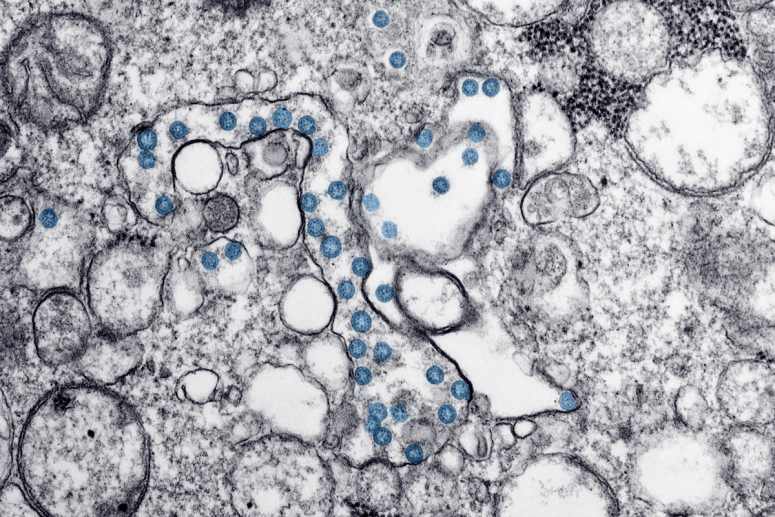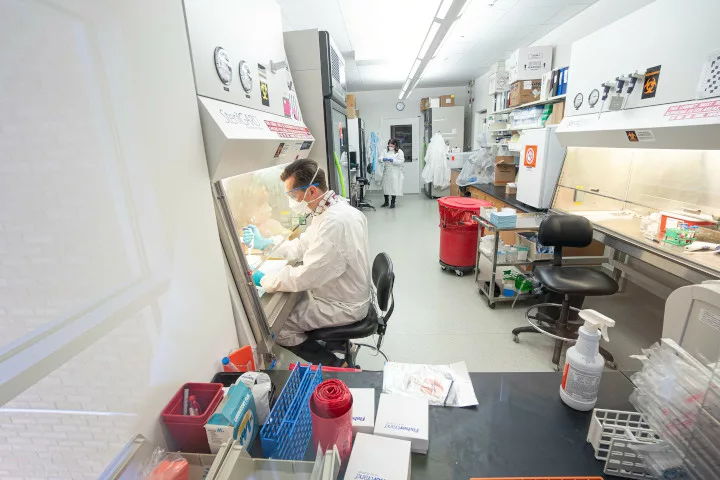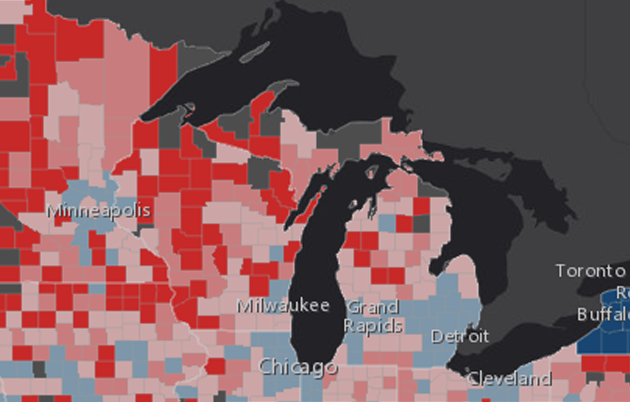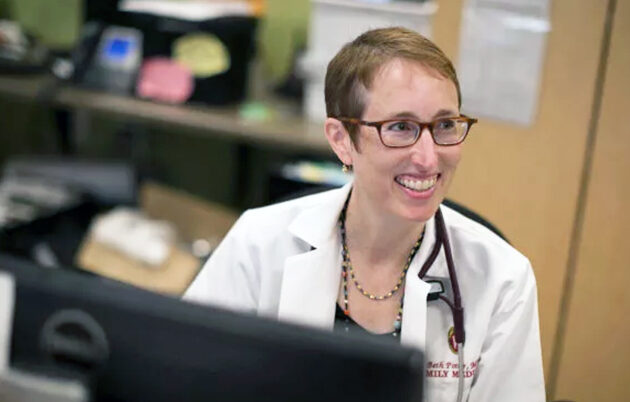It also requires a machine called a thermal cycler, which allows scientists to make many copies of the genetic material so there is enough of it to measure. Other reagents are necessary to stabilize and complete the reactions.
It would have been relatively simple to increase local testing capacity if the new virus hit only one part of the world. But that’s not what happened.
“Simultaneously, all across the globe, everyone was trying to purchase the same materials at the same time,” says Sterkel.
However, State Laboratory of Hygiene’s colleagues across the university have stepped up to help by donating some of the necessary reagents, supplies and more. One of its biggest partners has been the Wisconsin Veterinary Diagnostic Laboratory, which has loaned equipment and reagents and provided training to State Laboratory of Hygiene.
The Veterinary Diagnostic Laboratory has also stepped up to produce the viral transport media that preserves patient samples for testing — a key bottleneck in many places. The lab runs exactly the same kinds of tests for diseases in animals and has long made similar test kits for partners around the state. A team of eight to 10 staff is now able to produce up to 10,000 kits a week.
The Veterinary Diagnostic Laboratory was able to make its first batches of test kits using materials on hand as soon as State Laboratory of Hygiene needed them and has shipped in fresh materials to keep producing media for as long as necessary. The lab also continues to fulfill its duties to animal testing.
“We already had a strong collaborative relationship with the Wisconsin State Laboratory of Hygiene,” says Keith Poulsen, director of the Veterinary Diagnostic Laboratory and professor at the UW School of Veterinary Medicine. “That relationship has made it easier to deal with difficult times like this.”
UW Hospital and WSLH have also been working closely together. They’ve traded materials to allow both State Laboratory of Hygiene and UW Hospital’s clinical lab to continue testing patients. The State Laboratory of Hygiene has provided validation and educational materials to UW Health and to dozens of other health systems around the state to boost statewide testing capacity.
And State Laboratory of Hygiene has received support from within its own ranks. Other divisions within the agency have offered time, materials and expertise to assist with testing.



